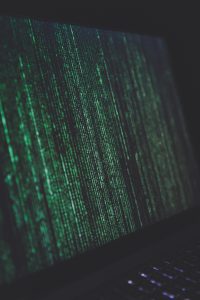 Cyber terrorism is a serious crime. Obviously, this falls on the higher end of the offenses that are committed on the internet. Chicago, like many states, is trying to update its laws in order to deal with these threats in an effective way, bearing in mind the fact that the technology is constantly changing. Likewise, there are employee training requirements for companies. The law firms that defend and participate in prosecutions are also coming to terms with the intricacies of the laws as well as the various regulations that have been put in place to regulate the activity that takes place on the internet.
Cyber terrorism is a serious crime. Obviously, this falls on the higher end of the offenses that are committed on the internet. Chicago, like many states, is trying to update its laws in order to deal with these threats in an effective way, bearing in mind the fact that the technology is constantly changing. Likewise, there are employee training requirements for companies. The law firms that defend and participate in prosecutions are also coming to terms with the intricacies of the laws as well as the various regulations that have been put in place to regulate the activity that takes place on the internet.
One of the issues that has come to the fore is the possibility that in the pursuit of cyber legality, there is a danger of infringing on the privacy of Chicago citizens. The state and legislature are always willing to have more control over the activities of residents. However, that level of control might have serious implications in terms of protecting civil liberties and the integrity of the American Constitution. The International Association of Privacy Professionals (IAPP) has been at the forefront of advocacy work in this respect so as to moderate some of the excesses that are proposed in prospective legislation.
The Quagmire of Data Collection
Everybody in Chicago is collecting data today. For example, local stores keep details of their customers so that they can identify their spending patterns as part of their own organizational arrangements. The customers may not even be aware that by signing on the dotted line, they are in effect handing over their privacy. The company can use that information for a number of purposes, some of which are not entirely benign or benevolent. There have been stories of customers being passed around from outlet to outlet, which results in their homes being bombarded with unsolicited marketing literature. Besides, one of the fundamental aspects of American life is the notion that one is free and can keep control of one’s privacy.
On the other hand, the government may feel that those who are emphasizing the privacy protection provisions too much are missing the point. Criminals can do a lot of damage to the community at large. The rationale that is used for more restrictive legislation is the possibility that the individual good can be sacrificed for the greater good. The classic example that is given is that of cyber terrorism, in which very serious criminals can use the anonymity of the internet in order to facilitate their criminal networks.
Support for Victims
Given the complexity of the crime and the relative sophistication of the people that commit cyber crime, the victims may require support. Some of them do not even realize that they have been attacked until it is too late. A case in point is when a virus, a Trojan Horse or other type of malware, is introduced to a commercial computer network. The owners are then in effect held to ransom before their data can be released. Some of the demands that are made include money, whilst others are to do with giving up on certain competitive activities. Even if violence is not involved, the victim is in effect being blackmailed.
The courts can also be caught off-guard by the complexity of the crime. Bitcoin started out as a great way to sidestep the tyranny of banks and legal tender. Eventually, it became a conduit for many people to engage in clandestine activities. The law has to draw a fine line between allowing the benefits of such a money scheme to take place and keeping the criminals at bay. Schemes such as the American conference are meant to raise awareness and educate the public. For professional counsel on your cyber security case, contact David Freidberg, Attorney at Law at 312-560-7100.
(image courtesy of Markus Spiske)
 Chicago Criminal Lawyer Blog
Chicago Criminal Lawyer Blog


